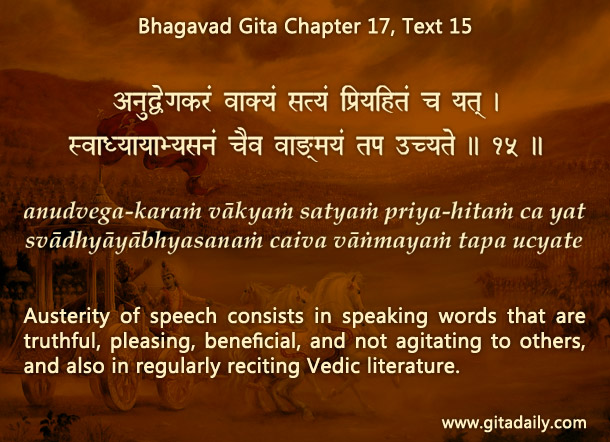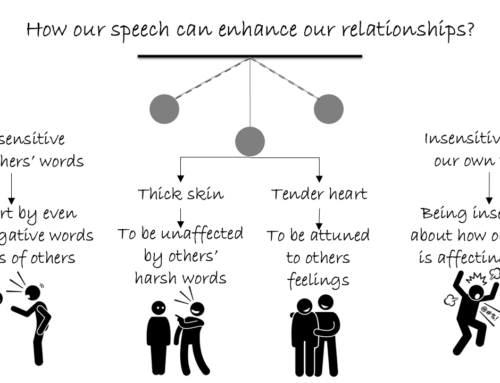When we aspire to share some wisdom with others, especially to help them make better choices, we need to balance two things: truth and grace.
Truth without grace is hard-hearted: People come from different backgrounds and may have their own emotional vulnerabilities. Just as some people may be physically weak and not be able to walk straight or carry the same weights we might be able to easily carry, others might not be able to take the emotional blows that our truthful statements might inflict on them. Worse still, we might not even know that we are inflicting those blows on them because emotional weaknesses and wounds, unlike their physical counterparts, aren’t easily visible. To speak truth with grace means to be caring enough to be aware of the impact our words are having and to minimize the negative impact as much as we can.
Grace without truth is empty-headed: If we care so much for others’ feelings that we let them stay blind to the facts that they need to see, then we are not helping; we are harming. If someone is engaging in some self-destructive habit to escape from some emotional wounds and if we repeatedly protect them from the consequences of their actions without protecting them in the name of love, then we aren’t helping them; we are hurting them by enabling them in their self-sabotage.
Life is hard, and our bad choices can make it much harder. Therefore, we need to do all we can to equip them to make right choices — by empathizing with their struggles and pains, while also emphasizing the consequentiality of their choices. It is this delicate balance that the Bhagavad-gita calls austerity of speech.
One-sentence summary:
Truth without grace is cold-hearted, grace without truth is empty-headed; truth with grace emphasizes and empathizes, empowering others to choose wisely.
Think it over:
- What’s wrong with speaking truth without grace?
- What’s wrong with offering grace without truth?
- Consider a situation wherein someone you care for is making a terrible choice. In communicating with them, how can you balance truth and grace?
***
17.15: Austerity of speech consists in speaking words that are truthful, pleasing, beneficial, and not agitating to others, and also in regularly reciting Vedic literature.




Leave A Comment